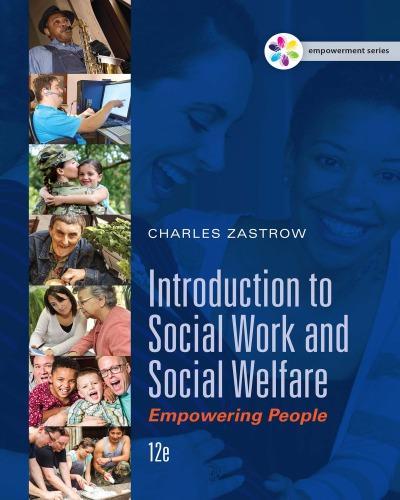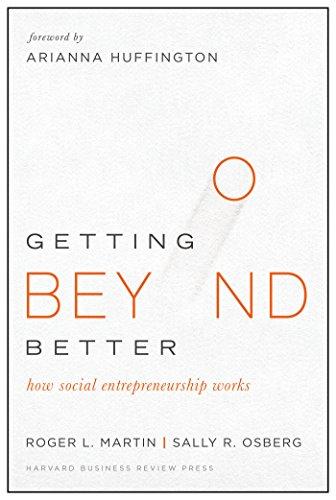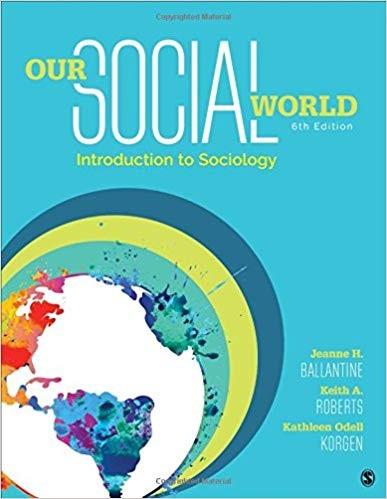Preface: A Letter to the Reader
All entrepreneurship is social. As a mentor of mine once said, “Unless you’re trading illegal or harmful substances, you’re producing positive social outcomes by creating jobs, building the economy, and advancing human capacity.”
The reason we use the terminology of social entrepreneurship, and the reason it has developed into a field of its own over the past decades, is that despite all the commercial entrepreneurship out there, despite all the industry and business and enterprise, there are still huge chunks of the human population without basic human needs. Water, sanitation, education, and basic health services and knowledge, which most of the world’s population take for granted, are still today, in the midst of the third millennium, inaccessible for over a billion people.
Most readers would agree that governments carry the primary charge for meeting these basic needs and in most cases have already pledged in writing to do so. The purpose of this book is not to divert resources and attention away from the government sector. The purpose of this book is to acknowledge that individuals can make, and have made, a huge difference to underserved populations. Social entrepreneurs around the world have created and implemented effective, scalable, and sustainable solutions to the most basic of human challenges. While their work is unique each in its own context, we have gleaned lessons from their successes and failures.
Understanding the social challenges we are facing; co-creating solutions with the community; creating products and services in contexts not currently served by the markets; building resilient business plans around those products and services while adhering to the social mission; mobilizing financial, human, and other resources; and building initiatives and organizations that work to maximize social impact—these are the basic frameworks we have seen to maximize the chances of success of a social venture.
In this book, you will see many different models, examples, and ways of thinking about social entrepreneurship. These have been compiled into a framework that will help you start taking the first steps toward figuring out your own model. The only thing I need you to understand unequivocally is this: There is no one model that can solve all the world’s problems. I don’t know much, but I do know this for sure. We as a human race just have not figured it out yet.
So the purpose of this book is not to teach you how it’s done or to present a winning formula. It’s to share with you the collective human knowledge that has been created from numerous attempts, failures, and accomplishments to date. From here on out, it’s up to you. The purpose is not for you to take these approaches, learn them, and copy and paste them. The goal is for you to completely disrupt them, question them, and find new ways of doing things.
What you are tasked with is taking this knowledge that we have collectively created up until now and completely hacking it! Knock it out of the ball park. Make it irrelevant. I want you to
take this framework, apply it, and then discover new things that prove me entirely wrong and come up with new answers of your own. Leave no assumption unquestioned.
You might come up with something along the way that completely obliterates everything I have written in the book. I hope so. Because this is how human knowledge progresses. This is how we figure things out as a race.
compartmentalize my time to get it all done. Most importantly, he taught me how to nurture my mind and my soul.
Without my family at Alfanar venture philanthropy, none of this would have any meaning. Thank you for providing me with the platform to practice what I preach and working to improve the lives of the most marginalized populations. This thanks goes both to the team, who not only tolerate but also appreciate and share my quirks and insanities, and to our investees, who are my day-to-day coworkers in Lebanon. You are what all this is about. Last but not least, I’d like to thank Bader Young Entrepreneurs Program and team and MIT Enterprise Forum Pan Arabia for hosting Alfanar Lebanon and me in their beautiful Coworking+961 space. I truly believe that place matters and that surroundings inspire. The opportunity to incubate my thoughts, and this book, in a serene oasis had a direct impact on what I produced, and I am infinitely grateful for that experience. Thank you for bearing with me and nurturing my need for deep concentration. Tracing this all back to the root cause, ultimately, the largest thanks go to my parents. Realizing that not every student reading this book will have this ingredient to success, people who literally believe that you can do anything, I have tried to infuse this message into the book and serve as that person for my students. The source of all this is the two people who have infused me with this belief since my inception, constantly and repeatedly, without blinking. Thank you also to my dear sisters, who by far surpass me in their own writings, dreams, and achievements. I’m so lucky to have you, and you mean more to me than anything. Without you, I would not have done half of this, and I hope you know it. My friends and soul mates who have kept me sane, who not only humored me but also fueled me with their ideas, laughter, thought questions, and encouragement: I sometimes feel as if I’ve cheated, and one day someone will come up to me and recall you, because it’s not possible to have scored the company of such celestial beings to share life’s journey with. This is the meaning of life, taking care of those around you, and trying your best to collectively leave behind a world with more beauty and justice than when you started.
Author
Teresa Chahine is the Social Entrepreneurship Program Leader at Harvard T.H. Chan School of Public Health, Center for Health and the Global Environment. She teaches social entrepreneurship at Harvard Chan School and Harvard Extension School, and trains social entrepreneurs worldwide. Dr. Chahine is also the director of Alfanar Lebanon, which she launched in 2012. Alfanar is a venture philanthropy organization that has been supporting social entrepreneurs in Lebanon and Egypt since 2005. To learn more about her work and how you can get involved, visit www.chgeharvard.org and www.alfanar.org. Connect with her on Twitter @teresachahine.
Photo by omas Morgan, Reframe d Pictures
Other documents randomly have different content
relations with the criminals, 163; escapes from prison, 189 n., 234; work of gold-washing, 233; privileges, 234; decree against, 234; annulled, 236; measures against, 235; modifications, 236; petitions for pardon, 277; join in a hunger-strike, 277; expiration of the sentence, 293 n.; release of, 298, 299 n.; relations with the peasants, 312; women, 266-269; conditions of life in prison, 270; relations with the authorities, 270; disputes, 271; their hunger-strikes, 273, 277, 284; boycott Captain Masyukov, 278; sufferings, 279
Poltava, 107
Pood, value of, 308 n.
Popko, his escape from Irkutsk prison and recapture, 189 n. Popov, Michael, 57 n.
Posen, Nicholas, his escape from Irkutsk prison and recapture, 189 n; in Kara prison, 244; his passion for argument, 244; petition for pardon, 277
Post, arrival of, in Kara prison, 249; the “secret,” 251
Pressnyàkov, sentenced to death, 214
Roth, inspector, 25, 28, 37
Rouble, value of a, 59 n., 222 n.
Rozòvsky, case of, 39
Rubìnok, his sentence, 121; banished to Eastern Siberia, 151; sent to Yakutsk, 195
Rumania, 36
Russakov, 264
Russel, Dr. N., 354; his meeting with Deutsch, 355
Russia, “administrative methods,” 34, 36, 65, 293; institution of banishment by, viii; army, volunteer in the, 85; census, orders for a, 317; Christian names, use of, 104; criminal code, 87, 293 n.; Easter, custom at, 134; extradition treaty, 6; gendarmes, character of, 46; literature, socialistic, prohibition of, 1; “politicals,” method in dealing with, 40 n.; prison regulations, 126; Propagandist movement, viii, 6; its character, 7; reaction, 276, 357; Social Democracy, expansion of the movement, 326; views on, 212; terrorists, number of, 64; village communes, power of the, 176; Workmen’s Union, 191, 198 n.
Russìnov, Councillor, 275; his proposals of recantation, 276
expansion, 326; German law against repealed, 358
Social Democrats, 131; views on, in Germany, 213; in Russia, 212
Soudyèhkin, Colonel, Commander of the Petersburg Ochrana, 43 n.; assassinated, 43 n.; succeeds in capturing terrorists, 267; discovery of a bomb laboratory, 267
Souhomlìn, 259; his release from prison, 298
Sozialdemokrat, 1, 13
Spandoni-Bosmàndshi, Athanasius, 112; terms of his indictment, 118; condemned to penal servitude, 151; his illness, 186; at Kara prison, 259
Stanitsa, Aigùnskaya, 321
Stanyukòvitch, 65
Starinkyèvitch, 209; his character, 216; sentence, 217; release from Kara prison, 299 n.
Stàrosta, or head-man, 143, 147, 178; advantages of the office, 178; election, 223
Starshinà, or chief of the commune, 317
Statyehnyspìsok, or “list of particulars,” 97
Steblin-Kamensky, 197; on the prison life in Kara, 198
WhyIceasedtobeaRevolutionist, 276
Tìhonov, 100
Tihonòvitch, Lieut. Alexander, 115 n.;
Tishtchenko, 189 n.
Tiumen, 120, 144; separation of exiles at, 148
Tiutchev, his marriage, 207
Tobol, 151
Tobolsk, 149, 152
Tokio, 354
Tolstoi, Count Dimitri, 274; appointed Minister of the Interior, 130
Tolstoi, Count Leo, his visit to Moscow prison, 129; gift of books to the prisoners, 138
Tomi, 151
Tominin, appointed commandant of Kara prison, 298
Tomsk, 105 n., 151, 153; prison at, 154
Tools, possession of, in Kara prison, 240, 257
Transbaikalia, 193
Treaty, extradition, between Germany and Russia, 6, 53; Deutsch’s, 40, 62; Gotz’s attempted, 282 n.
Trepòv, General, Governor of Petersburg, fired at, 263
“Trial of the 193,” 261, 263
Troikas, or three-horsed carriages, 144; mode of travelling by, 146
Yefremov, his arrest and sentence, 262
Yemelyànov, his share in the assassination of Alexander II., 264; sentence, 265; change of views, 265; his petition for pardon, 277
Yenisei, 186
Yokohama, 354
Yordan, the student, his longing for freedom, 172
YoungNaròdnaiaVòlya, members of the, 131
Yun-Tcha-San, 338
Yurhovsky, 235 n.
“Yurtas,” or tent-shaped hovels, 308
Yuvatchov, Ensign Ivan, 115 n.
Zassoùlitch, Vera, 17 n.; her attempt on the life of General Trepòv, 263
Zeit,DieNeue, extract from, 328 n.
ZemlyàiVòlya, or Land and Freedom, 116; society dissolved, 196
Zèmskayakvàrtira, or official residences, 319
Zhelyàbov, 269
Zion, Professor, 285
Zlatopòlsky, Leo, his attempt on the life of Alexander II., 117; sentence, 117 n.; in Kara prison, 241, 258; release, 299 n.
Zlatoust, strike at, 71 n.
Zoubrtchitsky, 253








